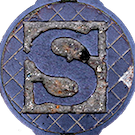Matthew Evans
| Matthew Evans | |
|---|---|
| Timezone | America/Los Angeles (GMT−08:00/GMT−07:00) |
| Institutional Affiliation(s) | UCSF |
| Relevant Projects | node.js
|
| Group(s) | Table 3 |
| Table Assignment | Table 3
|
Discord
Page Schemas#Creating a new Schema Page schemas is mostly a handy way to generate boilerplate templates and link them to semantic properties. A Form (using Page Forms is something that is an interface for filling in values for a template.
For an example of how this shakes out, see Category:Participant Template:Participant Form:Participant
- go to a `Category:CategoryName` page, creating it if it doesn't already exist.
- Click "Create schema" in top right
- If you want a form, check the "Form" box. it is possible to make a schema without a form. The schema just defines what pages will be generated, and the generated pages can be further edited afterwards (note that this might make them inconsistent with the schema)
- Click "add template" If you are only planning on having one template per category, name the template the same thing as the category.
- Add fields! Each field can have a corresponding form input (with a type, eg. a textbox, token input, date selector, etc.) and a semantic property.
- Once you're finished, save the schema
- Click "Generate pages" on the category page. Typically you want to uncheck any pages that are already bluelinks so you don't overwrite them. You might have to do the 'generate pages' step a few times, and it can take a few minutes, bc it's pretty buggy.
Workshop Submission
What's your interest in this workshop?
With what "frame" do you approach the workshop? (or identity)?
Tool-builder
What materials can you contribute to the workshop for consideration?
I provided some additional context in my previous answer, but one tool/ecosystem I work in is called OPTIMADE (https://optimade.org; https://github.com/Materials-Consortia/OPTIMADE), primarily as a developer of optimade-python-tools (https://github.com/Materials-Consortia/optimade-python-tools). At its core, OPTIMADE is an API specification for the layout, filtering and discoverability of resources describing crystal structures in the fields of materials science and chemistry. As a discipline, we are significantly less advanced than the equivalent life sciences endeavors in this area, in part due to lack of investment/potential payoff, and also due to the actual hierarchy of resources we are interested in describing. With OPTIMADE, we developed a common API format now used by ~20 data providers covering our field; these providers were typically already serving JSON APIs with their own bespoke formats, but jumping to a fully semantic API was not technically feasible for us as a community, currently run with little to no official funding off the back of graduate students and motivated PIs. The optimade-python-tools package (10.21105/joss.03458) aims to lower the barrier for researchers to serve their crystal structure data in an open, filterable way, such that our data ecosystem becomes more decentralized and diverse, beyond the listed providers at https://optimade.org/providers-dashboard. I believe some of the challenges we faced will be common across fields, and I am very interested in exploring ways the broader sci. community can unite to solve such challenges and put tools in the hands of front-line researchers.
Organizer-estimated Topics
Metadata, Research Data, Discovery
